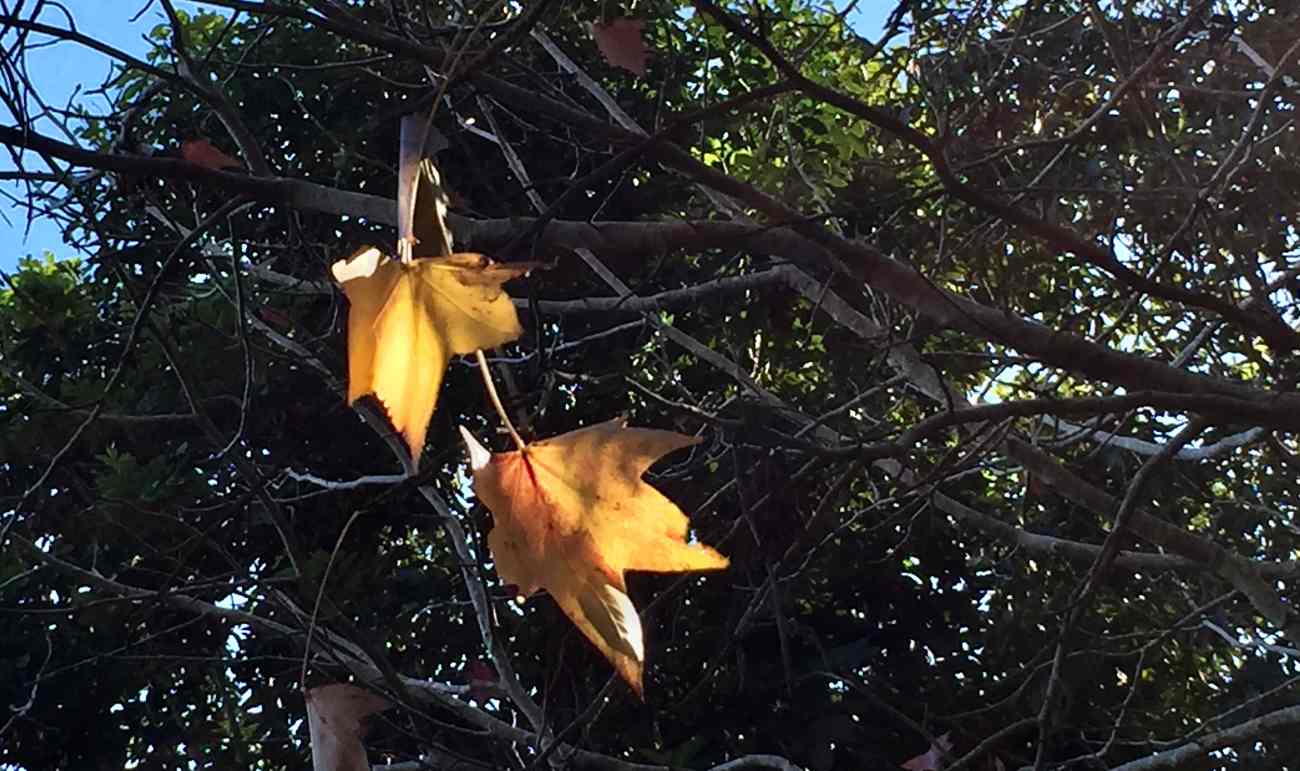If we understood that everything in our existence is transitory then we would be able to accept that a new car, the next anticipated big event or better job etc. is not forever and will not remain fixed in any way.
Awareness of impermanence leads us to the understanding that our desires are only ever fleetingly satisfied, for example success in sport or career is only ever a temporary high. We can’t cling to our youth or to any state of wellbeing. Old cultural and social traditions are breaking down, divorce is more prevalent, women have more independence and we are much more mobile with regard to housing and jobs which are all reflections to us of the nature of impermanence.
Nature constantly reflects change to us through the different seasons, the changing weather patterns and the movement of the celestial bodies. How often do we go through our daily routines without feeling the natural rhythms and cycles of life?
Quite simply, from in-utero life to old age, we are in a constant state of flux, our tissues, cells, and particles adapting to everything around us including the most subtle of energetic signals.1
When we are not open to accepting change it is usually because we are not living with an awareness of the present. This can lead to us becoming fearful of the future. If we cling to the idea that things are going to stay the same, when they do change, we are more likely to feel anxious, vulnerable, insecure, uncertain and discombobulated. We can remain attached to our comfort because of the false sense of security that it offers. If we feel the need to control life and it doesn’t measure up to our expectations, we can become bitter, despondent or given up. This can happen at any stage of life.
Buddha taught us that everything in existence passes away; nothing in creation is permanent. Resistance to impermanence leads to our dissatisfaction and sense of unease.
When we look at situations from the understanding that impermanence is a fact of life, we can be more accepting of change, more adaptable and flexible and less attached to how we want people or things to be, or how we want things to remain the same. Our relationship with impermanence determines how successfully we are able to respond to life’s changes.
With understanding of the ephemeral nature of impermanence, we allow things to be the way they are, we respect others’ choices, we accept that every change brings a new opportunity for learning, and growing. Our days flow when we surrender to what each day brings.
Appreciation is another antidote to our need to control life, as it enables us to expand and enjoy whatever life presents to us. It is ‘the glass half full.’
When we observe life this way the nature of impermanence offers us opportunities for deeper reflection, settlement and wisdom.
Ruth A., Sandra N., Bernadette C., Australia
Awareness of impermanence leads us to the understanding that our desires are only ever fleetingly satisfied, for example success in sport or career is only ever a temporary high. We can’t cling to our youth or to any state of wellbeing. Old cultural and social traditions are breaking down, divorce is more prevalent, women have more independence and we are much more mobile with regard to housing and jobs which are all reflections to us of the nature of impermanence.
Nature constantly reflects change to us through the different seasons, the changing weather patterns and the movement of the celestial bodies. How often do we go through our daily routines without feeling the natural rhythms and cycles of life?
Quite simply, from in-utero life to old age, we are in a constant state of flux, our tissues, cells, and particles adapting to everything around us including the most subtle of energetic signals.1
When we are not open to accepting change it is usually because we are not living with an awareness of the present. This can lead to us becoming fearful of the future. If we cling to the idea that things are going to stay the same, when they do change, we are more likely to feel anxious, vulnerable, insecure, uncertain and discombobulated. We can remain attached to our comfort because of the false sense of security that it offers. If we feel the need to control life and it doesn’t measure up to our expectations, we can become bitter, despondent or given up. This can happen at any stage of life.
Buddha taught us that everything in existence passes away; nothing in creation is permanent. Resistance to impermanence leads to our dissatisfaction and sense of unease.
When we look at situations from the understanding that impermanence is a fact of life, we can be more accepting of change, more adaptable and flexible and less attached to how we want people or things to be, or how we want things to remain the same. Our relationship with impermanence determines how successfully we are able to respond to life’s changes.
With understanding of the ephemeral nature of impermanence, we allow things to be the way they are, we respect others’ choices, we accept that every change brings a new opportunity for learning, and growing. Our days flow when we surrender to what each day brings.
Appreciation is another antidote to our need to control life, as it enables us to expand and enjoy whatever life presents to us. It is ‘the glass half full.’
When we observe life this way the nature of impermanence offers us opportunities for deeper reflection, settlement and wisdom.
Ruth A., Sandra N., Bernadette C., Australia
- Dianne Trussell

